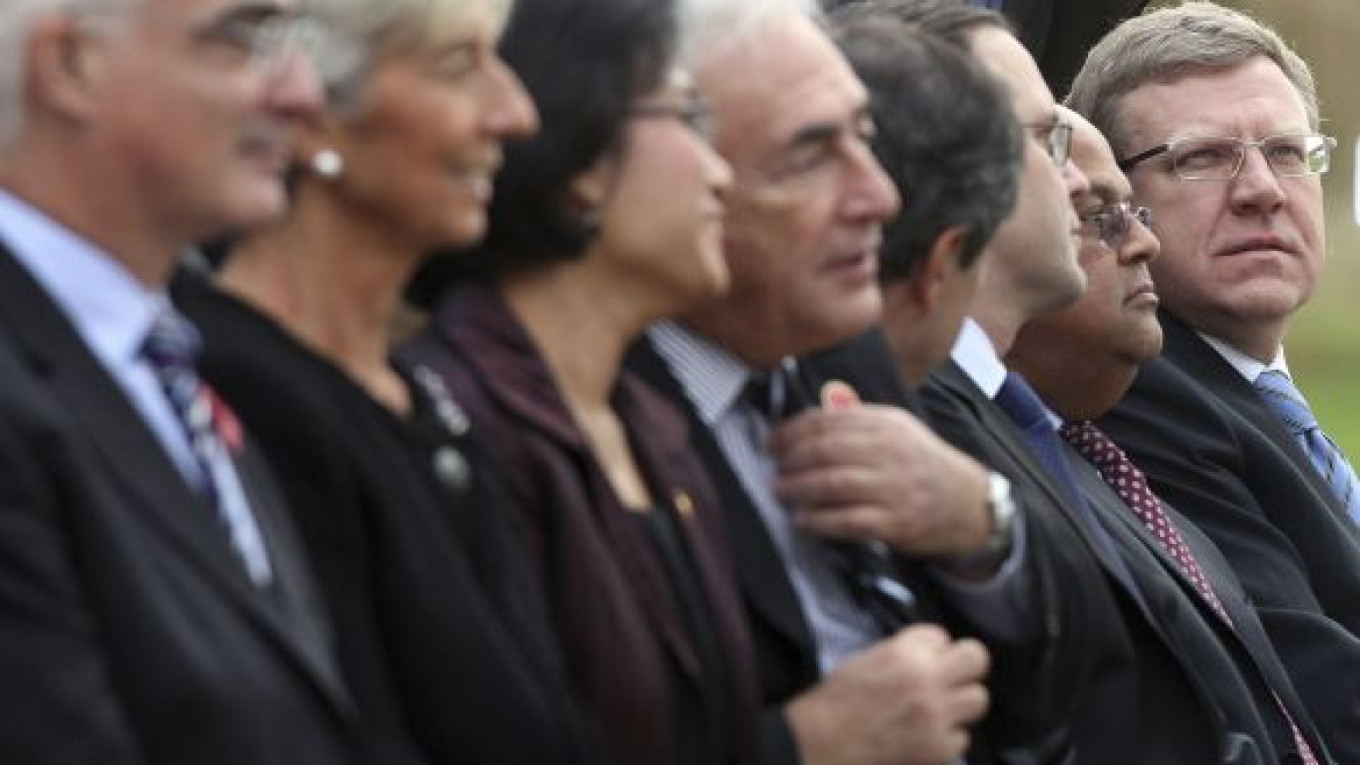Finance Minister Alexei Kudrin said Saturday that it was time to begin discussing the eventual withdrawal of economic stimulus packages, after his G20 colleagues pledged to keep their support in place until a global economic recovery is assured.
G20 finance chiefs and central bank governors, meeting in St. Andrews, Scotland, cited concerns over high unemployment and uneven growth in a communique released Saturday after the two-day summit.
“With the currents of growth that have started, we already need to consider the exit strategies,” Kudrin told reporters.
He also said he was concerned that asset price bubbles might materialize because of massive rapid capital inflows. “We need to be very careful with this huge amount of injected liquidity,” he said Saturday.
While Russia, among others, slipped out of recession in the third quarter, the forum warned of “variations in the pace of economic recovery and market conditions across countries” and elected to maintain broad emergency support measures until sustainable growth returns.
“Recovery is uneven and remains dependent on policy support, and high unemployment is a major concern,” G20 ministers said.
At its last summit, held in Pittsburgh, the Group of 20 industrialized and emerging economies agreed to develop a coordinated approach to growth, but agreement beyond broad pledges has proved elusive.
The framework hammered out at this weekend’s meeting allows for continued emergency support while gradually shifting the focus from crisis response to sustained growth. The member states committed to present economic plans for common scrutiny by the end of January.
Kudrin was dismissive of a suggestion by the British hosts that a flat tax be introduced on banking transactions to create a reserve fund for future bailouts. British Prime Minister Gordon Brown called for debate on the issue, arguing for an “economic and social contract” that would lessen the burden of bank bailouts on taxpayers.
But Kudrin said he was “skeptical of such tactics,” and slammed Brown as a politician who is “well known for always raising taxes.” U.S. and Canadian finance officials also criticized the British proposal.
There was general agreement, however, that the financial sector should somehow “contribute to paying for burdens associated with government interventions to repair the banking system,” according to the communique.
The G20 failed to reach agreement on the financing of environmental programs in the developing world, ahead of a major United Nations meeting on climate change in Copenhagen next month.
Asked whether Russia would contribute to an EU-led fund to curb emissions in developing economies, Kudrin said Moscow might provide technological assistance. “Our CIS neighbors will need help, and we will act to ensure that the CIS countries, those in Central and Eastern Europe, countries with low revenues, get the most help.”
He also cautioned against “piling commitments onto developing countries,” which he said could jeopardize efforts to eradicate poverty.
A Message from The Moscow Times:
Dear readers,
We are facing unprecedented challenges. Russia's Prosecutor General's Office has designated The Moscow Times as an "undesirable" organization, criminalizing our work and putting our staff at risk of prosecution. This follows our earlier unjust labeling as a "foreign agent."
These actions are direct attempts to silence independent journalism in Russia. The authorities claim our work "discredits the decisions of the Russian leadership." We see things differently: we strive to provide accurate, unbiased reporting on Russia.
We, the journalists of The Moscow Times, refuse to be silenced. But to continue our work, we need your help.
Your support, no matter how small, makes a world of difference. If you can, please support us monthly starting from just $2. It's quick to set up, and every contribution makes a significant impact.
By supporting The Moscow Times, you're defending open, independent journalism in the face of repression. Thank you for standing with us.
Remind me later.


